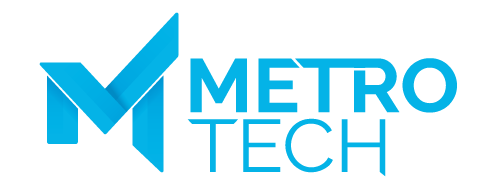Introduction:
ITIL 4 is a framework for quality IT service management (ITSM) through proven best practice, providing practical and flexible guidance to support your organization on its journey to digital transformation while empowering your IT teams to continue to play a crucial role in the wider business strategy. This course highlights the ways in which digital organizations and digital operating models function in high-velocity environments, including the use of working practices such as Agile and Lean, and technical practices and technologies such as Cloud, Automation, and Automatic Testing.
This class includes an exam voucher.
Objectives:
This course has been created to help IT service management practitioners working in organizations that are becoming more digitally enabled. The practitioners are familiar with traditional IT service management concepts, and now want to be able to discuss ‘digital’ with more confidence, to develop practical competences, and to be valued contributors in the digital domain.
They want to improve how they and their co-workers:
Help get customers’ jobs done – helping customers become who they seek to become
Keep raising the bar – taking things to a significantly higher level
Trust and are trusted – as professional knowledge workers in a healthy workplace
Accept ambiguity and uncertainty – not scared of not knowing an answer
Commit to continual learning – all as part of their daily work
The scope of the course is the primary activities in the digital value chain. In other words, what the practitioner does and which resources they use across the lifecycle of digital products, in order to:
Make the right digital investments
Realize and deliver digital products and services quickly
Provide digital products and services that are highly resilient to disruption
Ensure that the service consumer realizes value from the digital products and services
Assure conformance of activities with governance, risk and compliance requirements.
Understand and know how to use the key principles and methods of Organizational Change Management to direction, planning and improvement
Understand and know how to use the key principles and methods of measurement and reporting in directing, planning and improvement
Understand and know how to direct, plan and improve value streams and practices
Course Outline:
1 – THE NATURE OF HIGH-VELOCITY IN A DIGITAL WORLD
- Overview of the key ITIL 4 high-velocity terminology
- Understand when the transformation to high velocity IT is desirable and feasible
- Understand the five objectives associated with digital products – to achieve:
- Valuable investments – strategically innovative and effective application of IT
- Fast development – quick realization and delivery of IT services and IT-related products
- Resilient operations – highly resilient IT services and IT-related products
- Co-created value – effective interaction between service provider and consumer
- Assured conformance – to governance, risk and compliance (GRC) requirements.
2 – ITIL OPERATING MODEL – DIGITAL PRODUCT LIFECYCLE
- Understand how high velocity IT relates to:
- The four dimensions of service management
- The ITIL service value system
- The service value chain
- The digital product lifecycle
3 – FUNDAMENTAL CONCEPTS FOR DELIVERING HVIT
- Understand the following concepts:
- Ethics
- Safety culture
- Toyota Kata
- Lean / Agile / Resilient / Continuous
- Service-dominant logic
- Design thinking
- Complexity thinking
- Use the principles, models and concepts to contribute to:
- Help get customers’ jobs done
- Trust and be trusted
- Commit to performance
- Deal with uncertainty
- Improve by being inquisitive
4 – ACHIEVING VALUE WITH DIGITAL PRODUCTS
- Know how the service provider ensures valuable investments are achieved.
- Know how to use the following practices to contribute to achieving valuable investments:
- Portfolio management
- Relationship management
- Know how the service provider ensures fast deployment is achieved
- Know how to use the following practices to contribute to achieving fast deployment:
- Architecture management
- Business analysis
- Deployment management
- Service validation and testing
- Software development and management
- Know how the service provider ensures resilient operations are achieved
- Know how to use the following practices to contribute to achieving resilient operations:
- Availability management
- Capacity and performance management
- Monitoring and event management
- Problem management
- Service continuity management
- Infrastructure and platform management
- Know how the service provider ensures co-created value is achieved
- Know how to use the following practices to contribute to achieving co-created value with the service consumer:
- Relationship management
- Service design
- Service desk
- Know how the service provider ensures assured conformance is achieved
- Know how to use the following practices to contribute to achieving assured conformance:
- Information security management
- Risk management
Enroll in this course
$3,231.79

